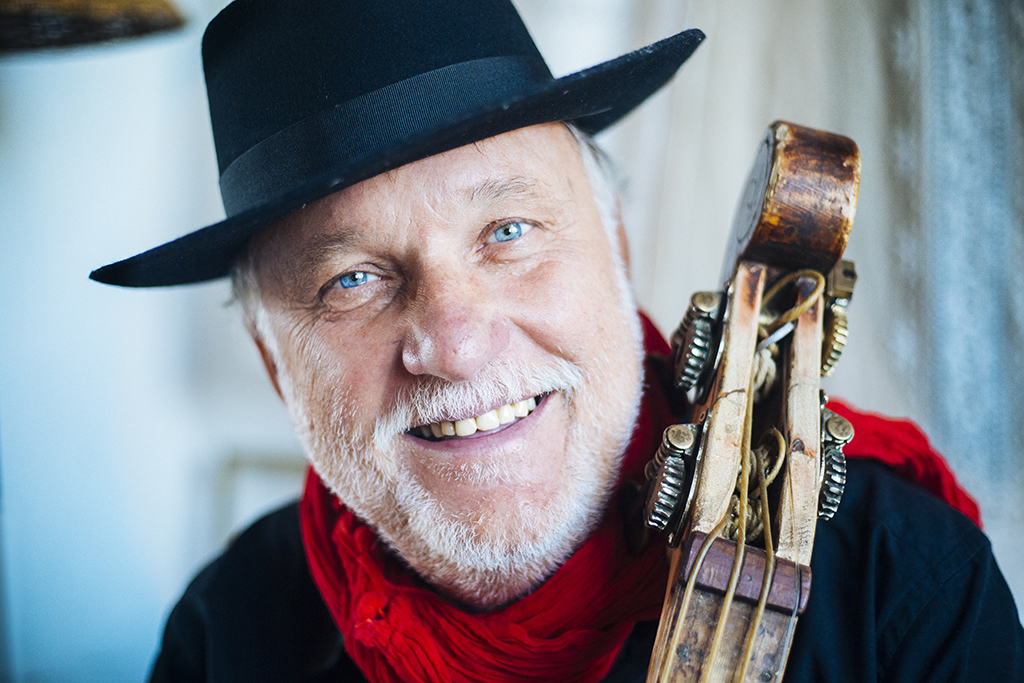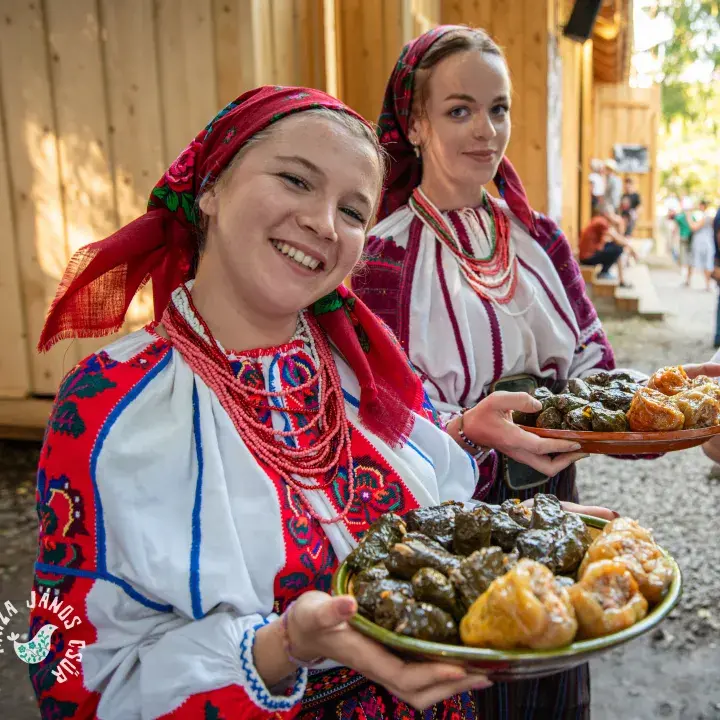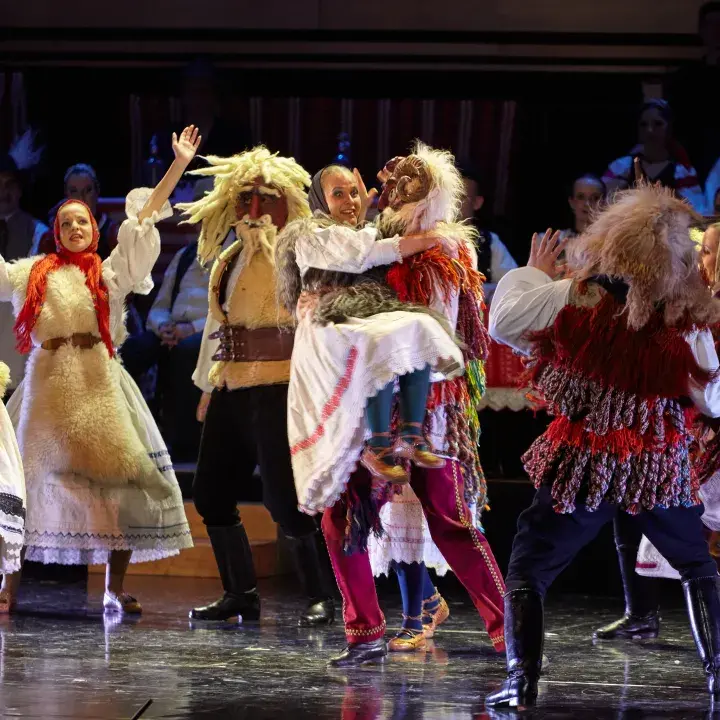Dániel Hamar is a folk musician, laureate of the Kossuth Award, founding member and contrabass of the Muzsikás Band established in 1973, a geologist by “trade”, Candidate of Geological Sciences, Scientific Expert of the Space Engineering Research Group at the Department of Geology and Space Studies at ELTE University, specializing in the research of plasma sheet. We talked to him about the situation caused by the pandemic, the isolation, keeping ourselves busy, movies, books and, of course, music.
How are You doing?
I’m alright, I always find something to do. I can keep myself busy, as I have done so many things all my life; I’m never bored. Naturally, I miss making music like hell. And I miss my family. And my freedom. There are many things that restrictions take away, but people have to accept that. I’m not depressed, I don’t feel like a huge tragedy has happened in my life. I can sit, read and think. I’m doing fine on my own. It doesn’t mean I’m lonely when I’m alone.
Are You working at the moment?
The university is closed, but I have grad students who I try to keep in touch with. We actually haven’t even met so far; when the first consultations were supposed to be held in March, that’s when the university was closed down. I’m retired anyway; I wouldn’t have to work, but there are many of us, pensioners, who still teach and work, as we can’t turn off our minds. As musicians, the lockdown happened as follows: I left my contrabass in the rehearsal room of concerto on Wednesday, they were supposed to bring it over to Pesti Vigadó along with the instruments of the symphonic choir, and they cancelled the concert in the evening. And at midnight, András Keller, the conductor called me, that there might be a concert in spite of it all, recorded by the radio, but they definitely cancelled at 10AM the next day. We were rehearsing on Wednesday, the concert was cancelled on Thursday, and there wasn’t a single one ever since; all concerts, including the tour in England, were cancelled. It is likely that the September tour of the United States is going to be cancelled as well; we should be already preparing under normal circumstances.

It means that many of Your concerts and planned events have been cancelled; how do You spend Your free time and energy?
I love manual labor; I have been doing carpentry in the last two weeks, I have repaired and polished the old chairs. Manual work often calms people down. It has a significant advantage against all other types of work: you can see the results instantly. If a person starts to learn French, he may not see any results in the first year or two; but if You repair a table, it is done within a week, and you get instant joy out of that. People need manual labor; to me, it brings peace. We are under lockdown with my wife, we talk all the time; I see my kids only through a screen now and then, but I talk to my friends on the phone more than I used to. I read books and I watch movies, something I have not really done before. I’m catching up now. Though I haven’t been to a cinema for years and I don’t watch television, I have downloaded a lot of movies now, and trying to keep up with the latest trends - maybe not that much with film arts. I try to follow the trends of Hollywood and Oscar-winning movies. You may draw interesting conclusion from what the American and European middle class are looking for during these times. I would like to see behind those secret lives that are not accessible to them. I liked Bohemian Rhapsody a lot, watched it over and over again; it’s a movie about the life of Freddy Mercury, a huge superstar, an awesome musician and an eccentric personality. I was captivated by the movie because of the music; for others, it might have been interesting to see what’s happening behind the scene, as they only see him performing in front of hundreds of thousands. At the same time, nobody knows what political giants like Churchill, Stalin, Trotsky or Al Gore are really doing. These people were all portrayed in professional, very well produced films, aimed at letting us get a peak into something; and it’s sort of sad that we got here, that we want to see these worlds that we cannot influence, and realize that their lives were not ideal, even on the contrary. I also read books; I dusted off Socrates, which took a long time. I read the Bible and listen to music. I replay the old concert footage of the Muzsikás Band. I have a plan to upload one archive footage to the Youtube channel of Muzsikás each week. We have retrieved a recording of our first appearance at the Music Academy, which was the first performance of Hungarian folk music there as well. This happened back in 1999; strangely enough, we have performed all over the world by then, but it was the first time that a concert of folk music was featured by the Academy not as a Sunday morning matinee programme for kids, but as an evening, prime time show. It was a big deal back then, as the Music Academy is not the home of folk music, jazz of pop music, but the sanctuary of classical music; so them opening up for folk musicians meant the world to us. Once these doors open and they let You in, it makes everything easier. And it was the Muzsikás who was let in. At that time, we were the flag carriers, as we had played music longer than anyone else, we had international experience, records and management from abroad; we could bring our music home with an approval stamp from London. If there could be a solo concert of the Muzsikás Band at the Royal Festival Hall, the Spring Festival or the Music Academy has no grounds to refuse us. But then again, it is always the most difficult to succeed at home. Actually, we have very exciting footage, but there is one that I’m still trying to hunt down. At the end of the 70s, or in the early 80s, we were the warm-up band for Dubliners; I have seen the footage of that once. But there are also interesting recordings from all over the world, for instance, from Japan, China or India. Hungarian folk music enthusiasts need to know that the international audience likes this style. But You also contribute to that at the Hungarian Heritage House. It is very important for people here to know about that, as we are prone to let ourselves down. We are willing to accept our own values more if we receive approval from abroad. I believe it is important for the world to know that this is a Hungarian brand, that Hungarian folk music is a phenomenon. Including Liszt, Brahms and his Hungarian Dances, Bartók, Kodály, Ligeti, Péter Eötvös, the Hungarian folk music and choir pieces. I consider this all to be the Hungarian world of music.
Apart from the old Muzsikás recordings, what type of music do You listen to?
You wouldn’t believe it, but I also listen to old rock songs. There was a time when I missed out on those; now I make up for it. I love classical music very much, as that’s where my roots are; I could listen to that anytime. I listen to folk music a little less, as my heart aches for it. It is so strange to hear folk music, and feel the void, thinking to myself: damn, I should be making that music now. I feel homesick in a way.
What positive effects of this situation do You see around You and in the world?
I have learned and experienced over the long years I have lived that a crisis is not always a bad thing. You see, a crisis has bad and good outcomes. I have travelled all around the world with my profession, but also with music, and I saw the great unjustice that this world is founded upon. The richer part of the world indulges in spending and luxury, considering their own pleasure, joy and personal fulfillment to be the most important aspect, that no matter the cost, they need to chase; on the other hand, poor people have basically nothing and struggle to survive. I have visited India several times, and I have seen poverty there, but I have also seen it from Afghanistan to Arabic countries, even saw the deepest slums of the United States. I’m talking about injustice in the context that we all know, how we should protect the environment and the Earth; at the same time, we readily accept that economies need to grow, and You need to throw away what is no longer fashionable, we need to change our phones and laptops every year, buy a new car in every 3-5 years, and new clothing twice a year. That’s not normal. Perhaps the world will become a little better. I hope that it will be the consumer society that will break, not humanity itself. It’s not a coincidence that the wealthiest of nations suffer through the worst of times now. We have to identify the mistakes we have made, and work towards achieving a change for the better. Already by now, the air being clearer is a positive change. Many people believe that misfortune would go away by leaving to a different place, where it would feel better than here with us. I have been all around, but my all-time favourite experience was when we built a boat with my friends, and rafted down the Tisza river from Tokaj. You might not need to go to the end of the world to see happiness; sometimes, You can see it right where You are. Of course, I say that while I’ve been around the world. But I still claim that people can find happiness and beauty right where they are. I’m an optimist by nature, I have always been one; I do not assess a crisis as a tragedy, but I see it as a chance to make positive changes in the world. People who are religious find this easier. Having faith in the Lord gives us a glimmer of hope. I find it relatively easy, as two of my sons are pastors, so my “training” never ends. But it wasn’t the pastor, but my son Domonkos, who said that God does not take joy in the sacrifice of human lives; he said that he brought this pandemic upon us in order to avoid a much greater sacrifice. That’s one way to put it, instead of crying because of being alone at home. I don’t think that the single purpose of life is to find my own feeling of beauty; it can also lie in making a sacrifice for a little child, and feeling the joy as it smiles back at me. Families and spouses become more important, as we realize that we don’t only live for ourselves. People with families are luckier now than those souls, who have indulged in going solo to tropical islands for holidays.
Do You have a book or movie that You would recommend for the lockdown?
I have finished the Trotsky series, which seems so shocking for my generation. It portrays the Soviet Union in a way that is truly scary and deep. Stalin, Lenin and Trotsky are all shown from a much different angle than we were taught. I can recommend that to everyone who is interested in history. Jocker is also a shocking movie. Or movies about people pushed to the edge of society, living, moreover, in a certain exotic world. For instance, the movie Parasite that won an Oscar this year, or the Japanese movie called Shoplifters. It is interesting how Hollywood and the Americans are fascinated by this world. As I’ve said before, I liked the Bohemian Rhapsody a lot. I liked it so much that I watched the original recordings afterwards as well. Socrates from Paul Johnson is probably not suitable for everyone; You need to get to my age to understand it. I read the Bible every day; I believe it’s good for everyone.



